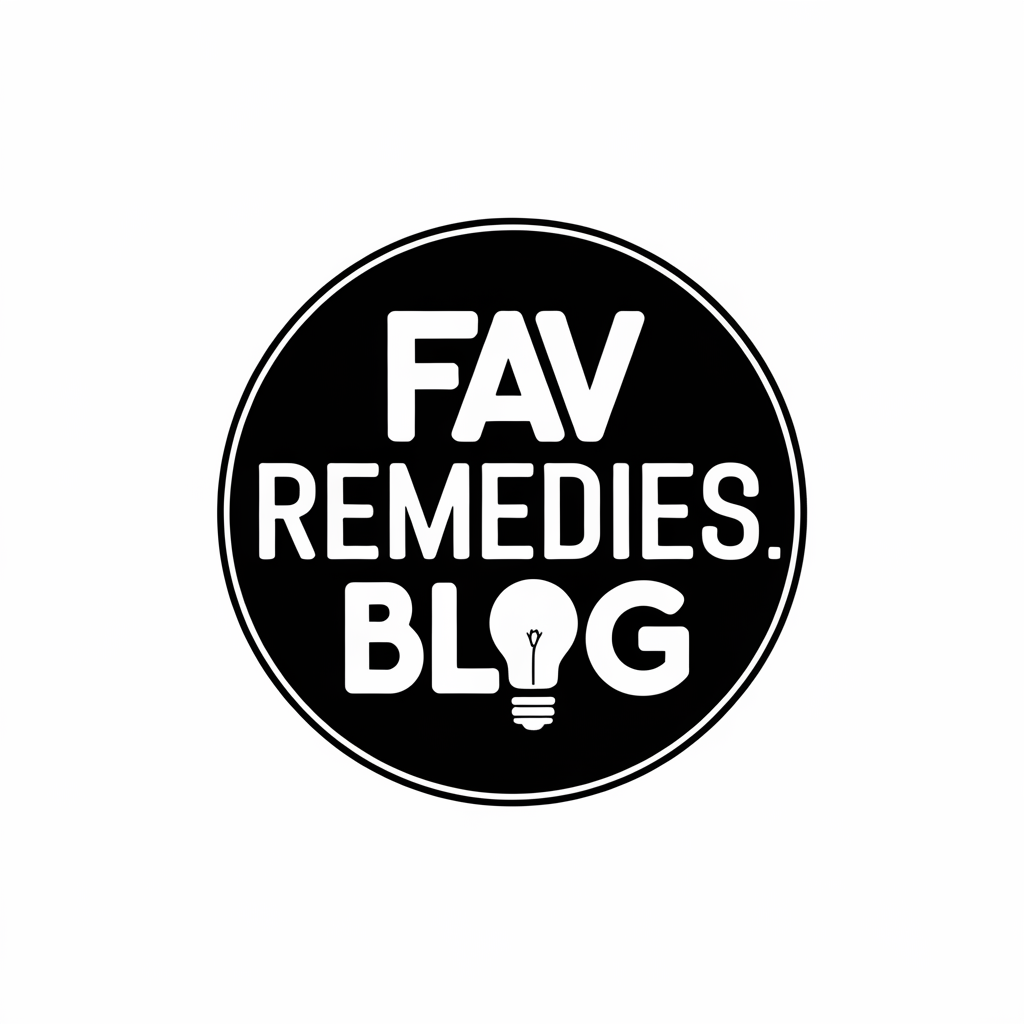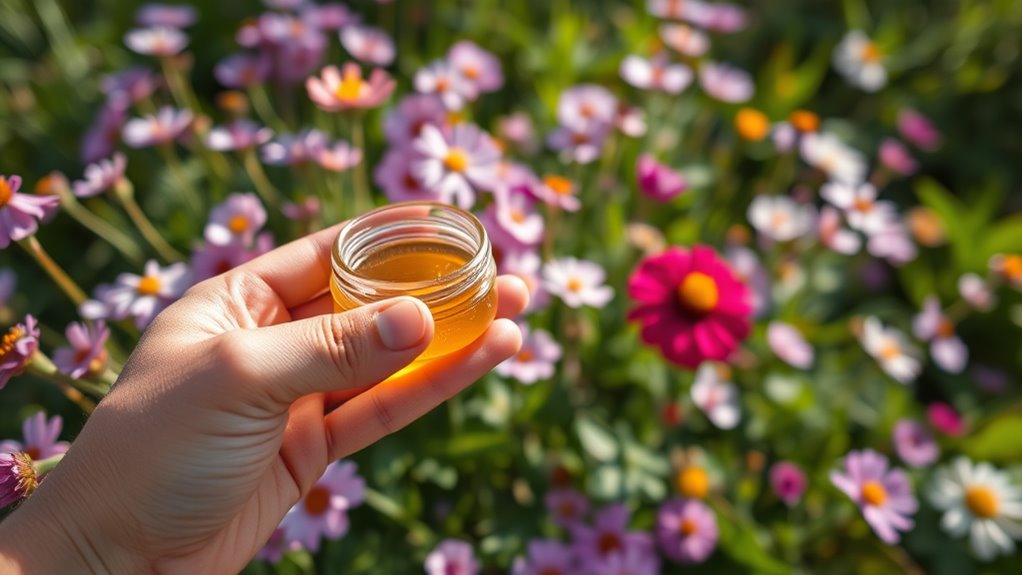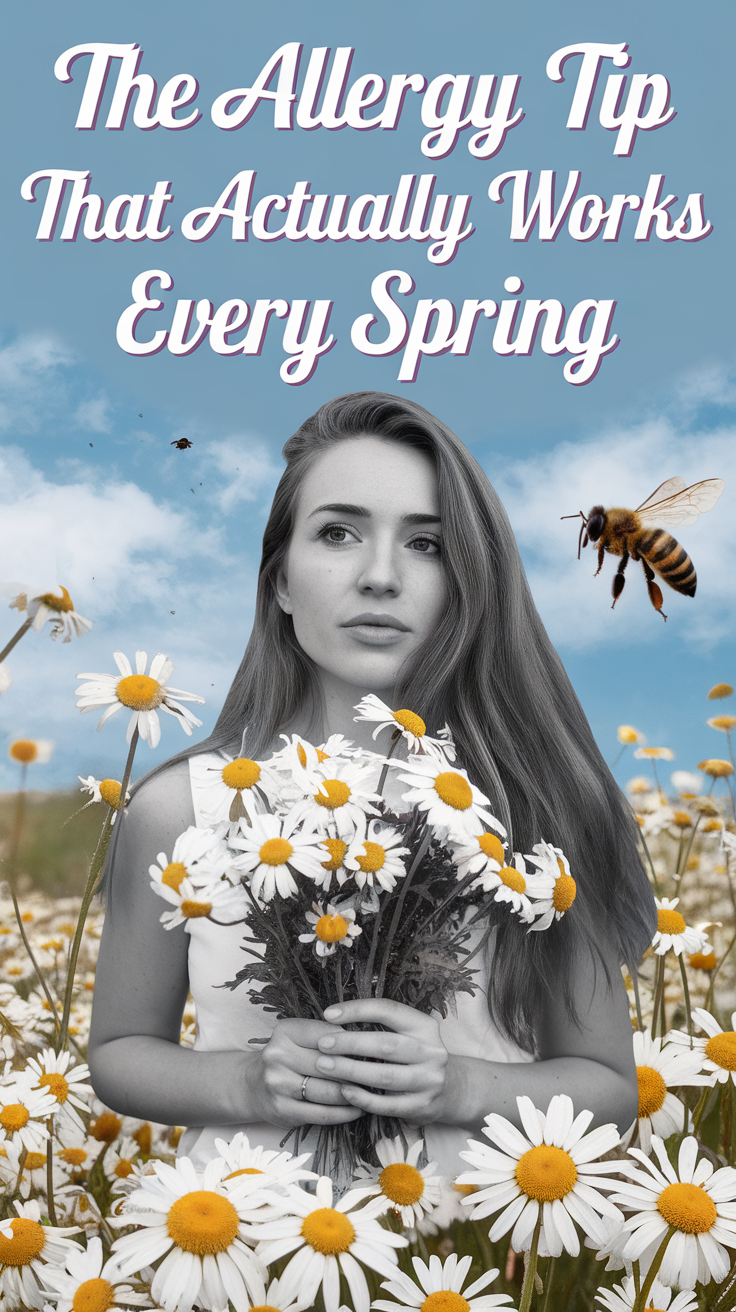The Allergy Tip That Actually Works Every Spring
To manage your spring allergies effectively, consider using saline nasal rinses to clear irritants from your nasal passages. Keeping windows closed and using air purifiers with HEPA filters can greatly reduce exposure to pollen. You might also find relief with local honey, which may help build immunity over time. Antihistamines and nasal corticosteroids are effective over-the-counter options to reduce sneezing and congestion. Discover more tips and remedies to ease your allergy symptoms throughout the season.
Key Takeaways
- Use a saline nasal rinse daily to clear allergens and reduce nasal congestion effectively.
- Consume local honey regularly to help build immunity against seasonal pollen.
- Keep windows closed during high pollen days to minimize indoor allergen exposure.
- Install HEPA filters in your home to trap and reduce airborne allergens.
- Shower and change clothes after outdoor activities to remove pollen from skin and clothing.
Understanding Spring Allergies
As spring arrives, many people find themselves grappling with allergies caused by pollen from trees, grasses, and flowers. These allergens trigger an immune response, resulting in symptoms like sneezing, itchy eyes, and congestion.
To manage these reactions, consider various allergy remedies. Over-the-counter antihistamines can effectively alleviate symptoms by blocking histamine release. Nasal corticosteroids help reduce inflammation in the nasal passages, while saline nasal sprays can flush out irritants.
Additionally, staying indoors on high pollen days and keeping windows closed can minimize exposure. Using an air purifier may further improve indoor air quality. Furthermore, incorporating local honey into your routine may provide a natural way to combat seasonal allergies, as it acts as a natural antihistamine.
Common Allergens to Watch For
While enjoying the beauty of spring, it’s essential to be aware of the common allergens that can trigger your allergies. Pollen from trees, grasses, and weeds are primary culprits during this season.
Tree pollen, particularly from oak, birch, and cedar, typically peaks in early spring. As temperatures rise, grass pollen, like fescue and rye, becomes prevalent. By late spring, ragweed pollen can also emerge, especially in warmer regions.
Mold spores from damp soil or decaying leaves are another significant allergen, thriving in moist conditions. Additionally, dust mites can be a concern as you start cleaning your home for the season. Incorporating an overlooked herb into your routine may provide natural relief from these allergens.
Monitoring these allergens helps you prepare and minimize your exposure, allowing you to enjoy the season more comfortably.
Effective Home Remedies
To combat the allergens that flourish in spring, many people turn to effective home remedies that can alleviate symptoms. These remedies can provide relief without the side effects often associated with medications. Below is a table listing some popular home remedies, their preparation methods, and their benefits.
| Remedy | Preparation | Benefits |
|---|---|---|
| Saline Rinse | Mix salt in warm water; use a spray bottle. | Clears nasal passages. |
| Honey | Consume local, raw honey daily. | May build immunity to pollen. |
| Apple Cider Vinegar | Dilute in water; drink daily. | Helps reduce mucus production. |
| Peppermint Tea | Steep peppermint leaves in hot water. | Acts as a natural decongestant. |
| Essential Oils | Diffuse or inhale oils like eucalyptus. | Eases respiratory symptoms. |
These remedies can enhance your comfort during allergy season. Additionally, using local honey may help your body adapt to pollen exposure by gradually increasing your immunity to allergens. Regular consumption of apple cider vinegar can also support your digestive health, which may indirectly benefit your overall allergy response.
Over-the-Counter Solutions
What options do you have when home remedies aren’t enough to manage your allergy symptoms? Over-the-counter (OTC) solutions can provide effective relief. Here are four common types you can consider:
-
Antihistamines: These block histamine receptors, reducing sneezing, itching, and runny nose. Look for non-drowsy formulas for daytime use.
-
Nasal Corticosteroids: These decrease inflammation in your nasal passages, helping with congestion and irritation.
-
Decongestants: These relieve nasal congestion by narrowing blood vessels, but use them short-term to avoid rebound congestion.
-
Eye Drops: Antihistamine eye drops can alleviate itchy, watery eyes caused by allergies.
Always consult your healthcare professional before starting any new medications to verify they’re appropriate for you.
Lifestyle Changes for Allergy Relief
Making simple lifestyle changes can greatly reduce your allergy symptoms and improve your overall well-being.
First, consider keeping windows closed during high pollen seasons to limit exposure. Use high-efficiency particulate air (HEPA) filters in your home to trap allergens effectively. Additionally, boosting your immunity through lifestyle changes can help your body respond better to allergens.
Regularly washing bedding in hot water eliminates dust mites and other irritants. It’s also beneficial to shower and change clothes after spending time outdoors to remove pollen from your skin and hair.
Furthermore, maintaining a clean environment by vacuuming frequently with a HEPA-equipped vacuum can further reduce allergen levels. Staying hydrated helps your body manage histamine levels, and a diet rich in antioxidants may also support immune function. Moreover, incorporating natural remedies like herbal teas and supplements can enhance your body’s ability to combat allergic reactions.


